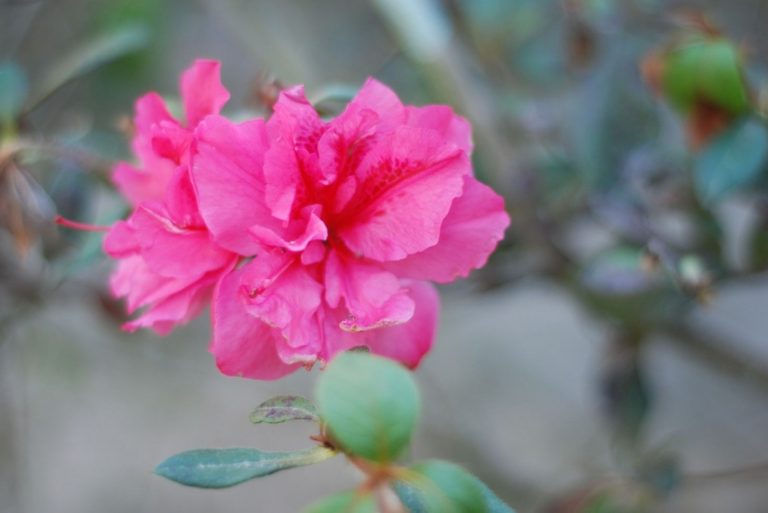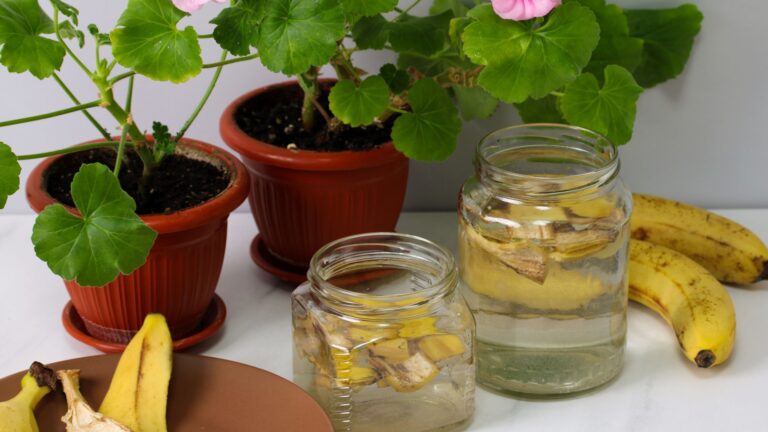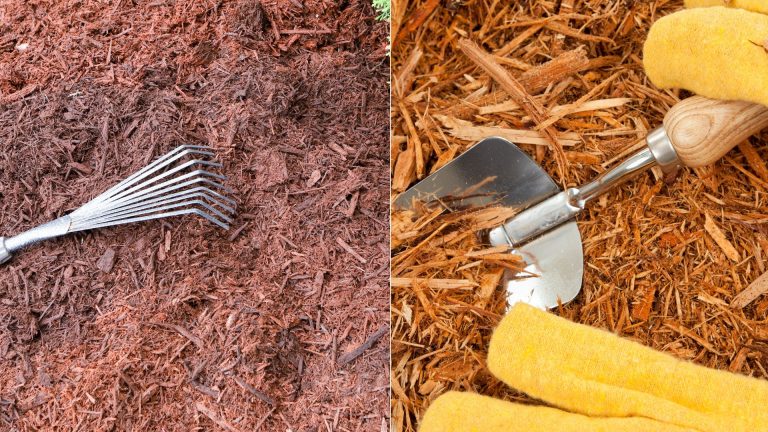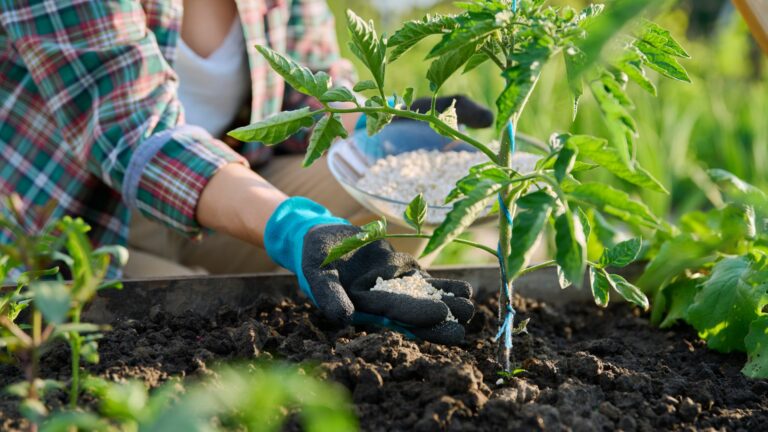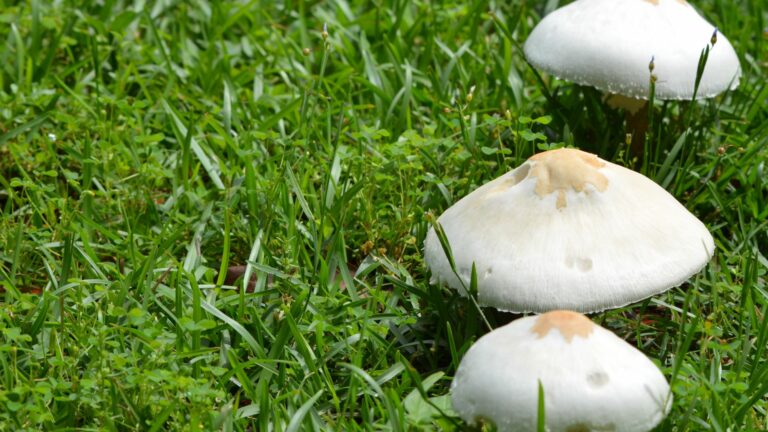Why Some Vermont Gardeners Keep Their Compost Bins Open In Winter
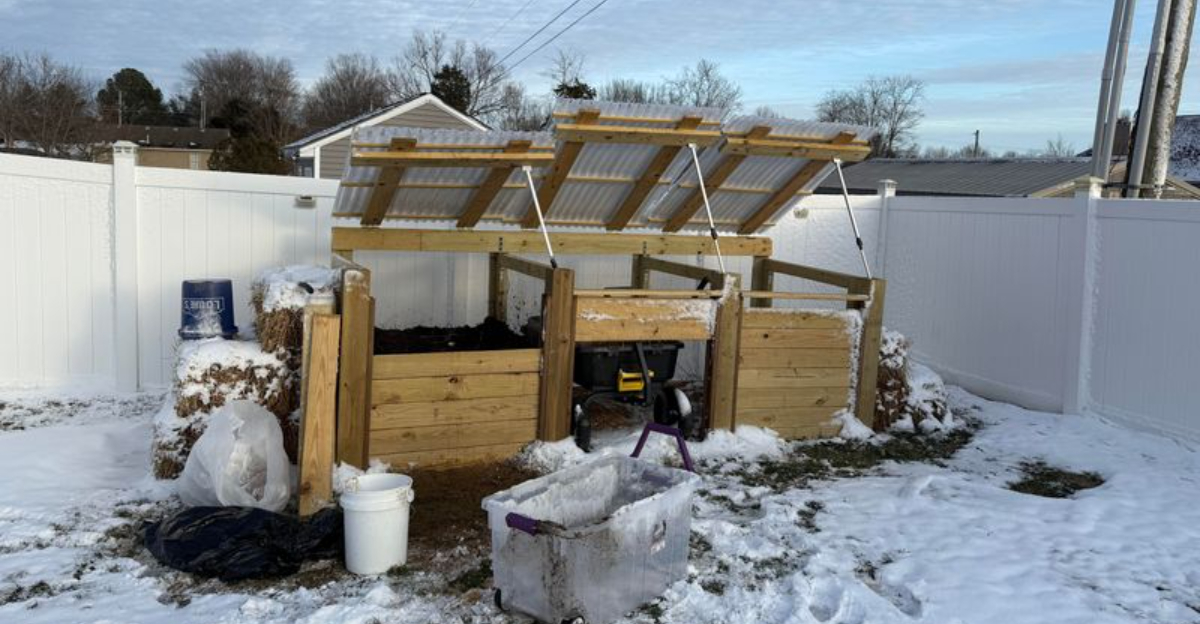
When snow blankets Vermont and temperatures drop, most gardeners seal up their compost bins tight. But a growing number of experienced composters are doing the opposite, leaving their bins open all winter long.
This practice might seem strange at first, but it comes with surprising benefits that can transform your garden soil come spring.
Snow Acts As Natural Insulation
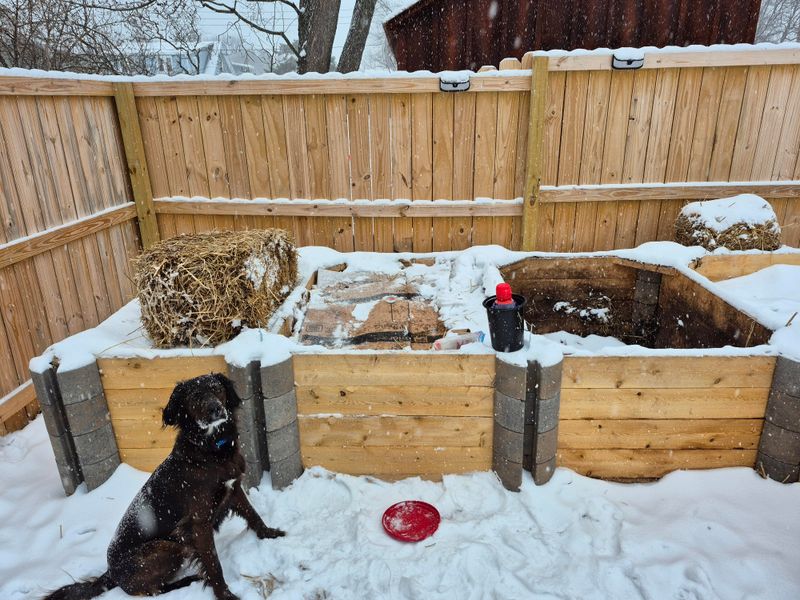
Snow creates a protective blanket over your compost pile that actually helps maintain decomposition activity. When snowflakes pile up on open bins, they form an insulating layer that traps heat generated by the composting process underneath.
This natural insulation keeps the core temperature warmer than the surrounding air. Microorganisms continue breaking down organic matter even when it’s freezing outside, though at a slower pace than summer months.
Vermont’s reliable snowfall makes this method particularly effective in the Green Mountain State.
Moisture Balance Stays Perfect
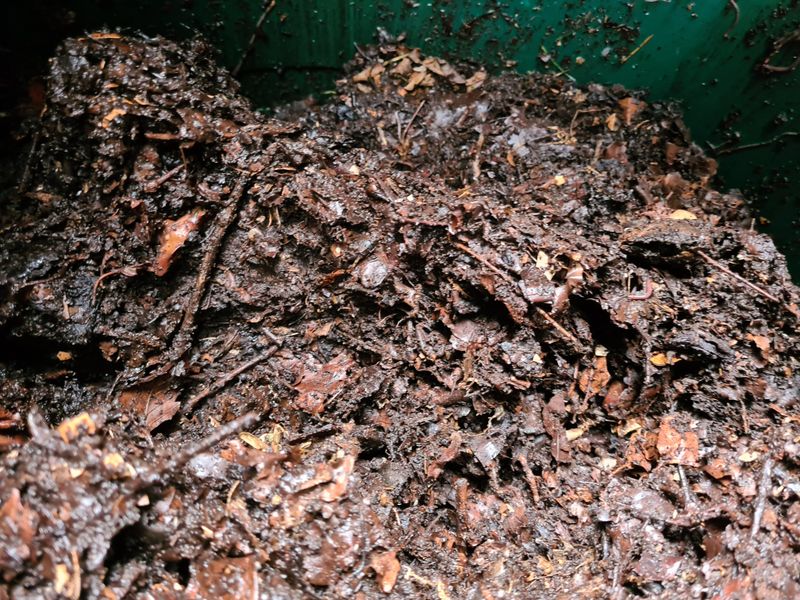
Keeping bins open allows melting snow to gradually add moisture throughout winter. Compost needs the right amount of water to decompose properly, and winter precipitation provides a steady, gentle supply.
Closed bins can become too dry during cold months, slowing decomposition to a crawl. Open systems let snow melt slowly into the pile, maintaining ideal dampness without creating soggy conditions.
When spring arrives, your compost will have the perfect consistency for mixing into garden beds without extra watering needed.
Freezing Breaks Down Materials Faster
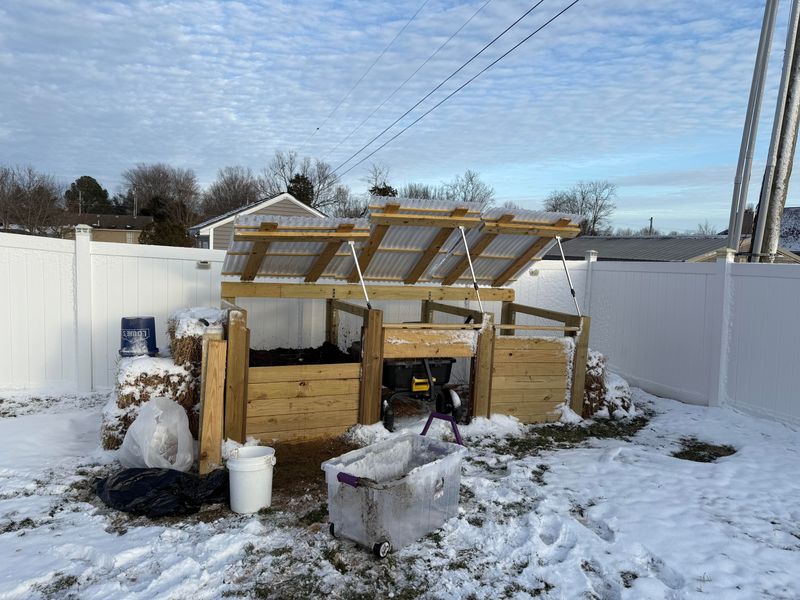
Repeated freezing and thawing cycles actually speed up decomposition by breaking down tough plant materials. Ice crystals form inside cell walls of kitchen scraps and yard waste, rupturing them from within like tiny hammers.
When temperatures rise slightly in Vermont and materials thaw, microbes can access nutrients more easily. This physical breakdown supplements the biological decomposition happening in warmer layers of the pile.
Gardeners who embrace this natural process often find their spring compost has a finer, more uniform texture.
Prevents Anaerobic Conditions
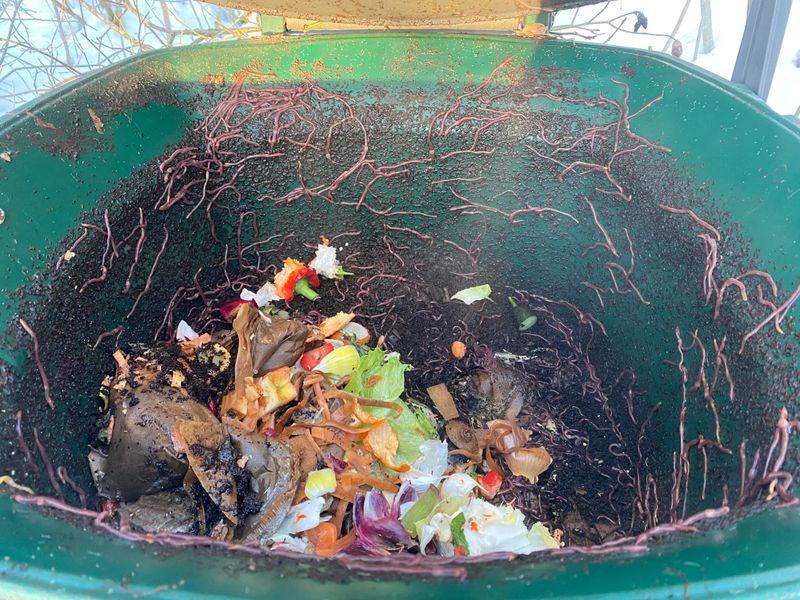
Air circulation remains crucial even during winter months for healthy compost development. Sealed bins can trap gases and create oxygen-poor environments where beneficial bacteria struggle to survive.
Open bins allow fresh air to flow through the pile, supporting aerobic decomposition that produces nutrient-rich compost instead of smelly sludge. Cold air naturally moves through the layers, preventing the buildup of methane and other unwanted gases.
Better airflow means less odor and higher-quality finished compost for your vegetable gardens.
Wildlife Provides Free Mixing
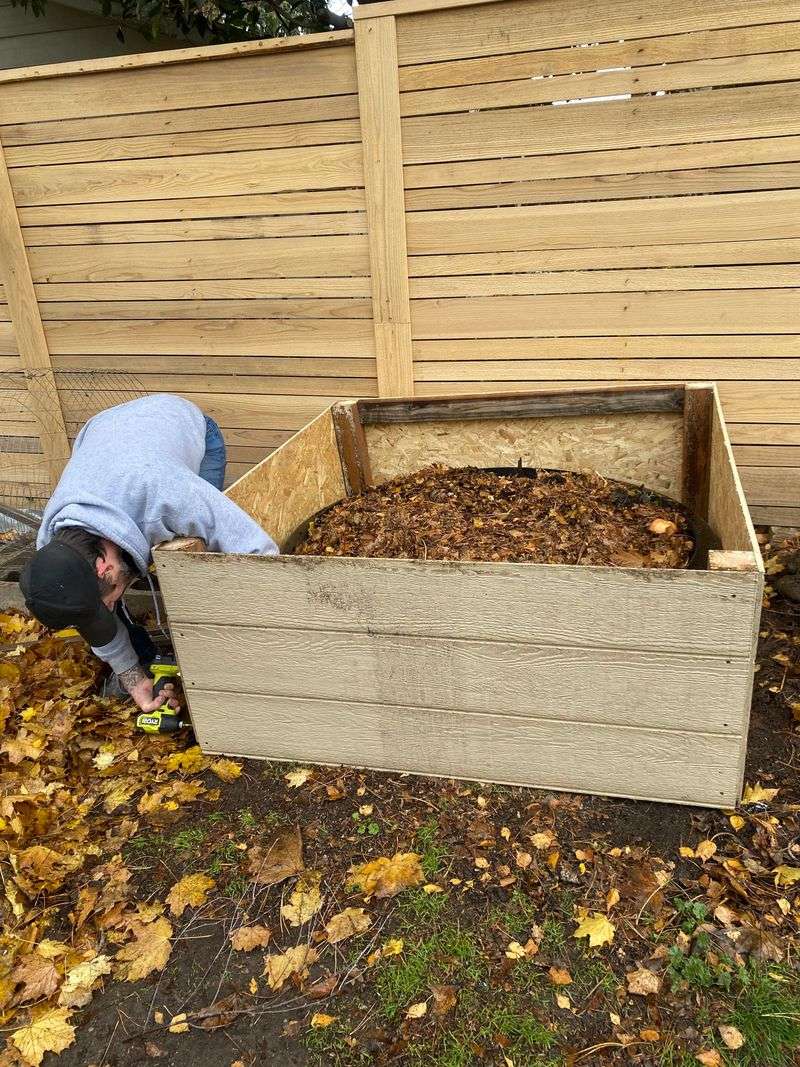
Hungry Vermont critters searching for food naturally turn and mix your compost pile during lean winter months. Squirrels, deer, and birds dig through open bins looking for scraps, doing the work of manual turning for you.
While some gardeners worry about attracting animals, this natural stirring improves decomposition by redistributing materials and creating air pockets. The key is avoiding meat and dairy products that attract larger predators like bears.
By spring, animal activity has created a well-mixed pile ready for garden use.
Saves Money On Bin Maintenance
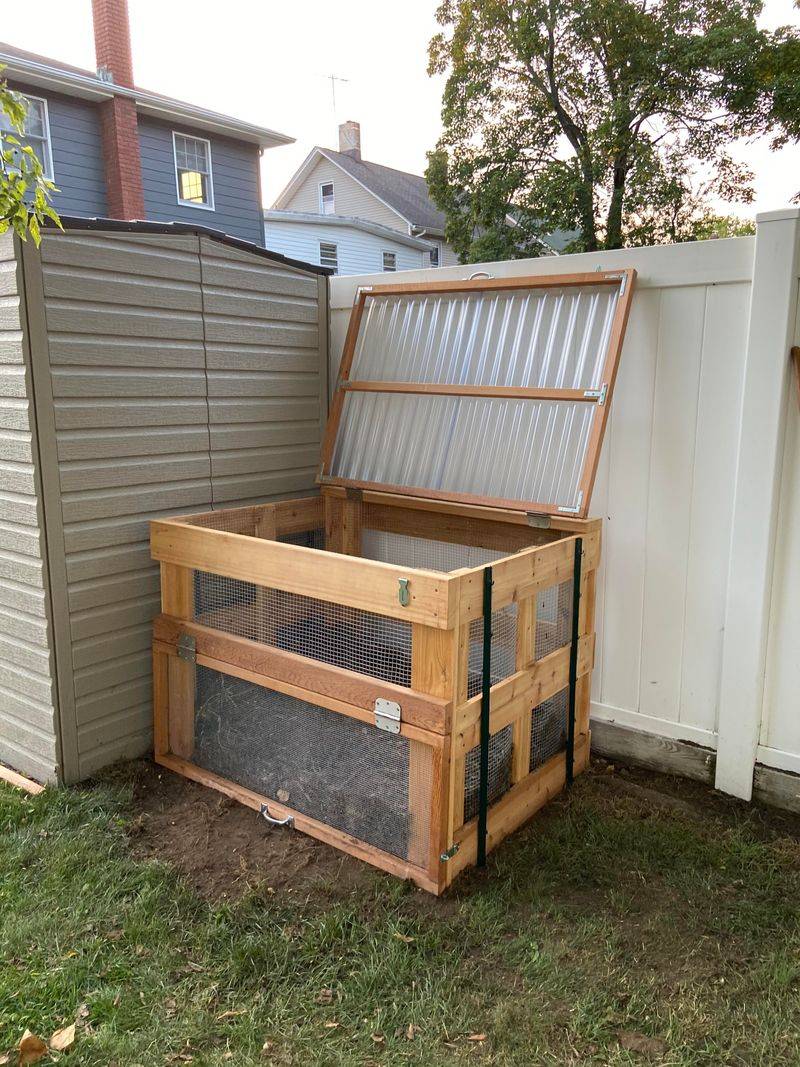
Lids and covers require maintenance, replacement, and often break under heavy snow loads. Open bins eliminate these concerns entirely, reducing long-term costs and frustration for budget-conscious gardeners.
Winter winds and ice can crack plastic covers, while hinges freeze solid and become difficult to operate. Removing lids means fewer parts to repair or replace each season.
Simple three-sided wooden bins work beautifully without tops, lasting decades with minimal upkeep while providing excellent composting results throughout all seasons.
Room For Continuous Adding
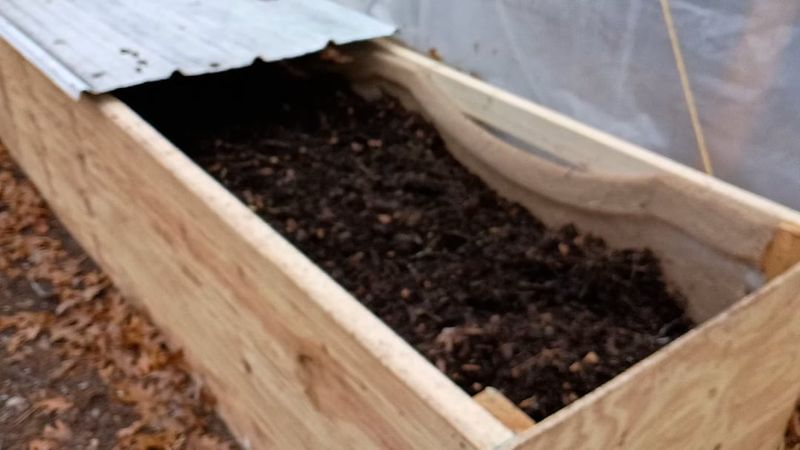
Winter meals generate plenty of vegetable peels, coffee grounds, and other compostable materials that need somewhere to go. Open bins make it easy to add scraps throughout cold months without wrestling frozen lids or digging through snow.
You can simply walk out and toss materials onto the pile whenever convenient. Layers of new additions alternate with snow, creating natural stratification that enhances decomposition.
Continuous feeding keeps beneficial microorganisms active and hungry, maintaining biological activity even during Vermont’s coldest stretches.
Spring Startup Happens Faster
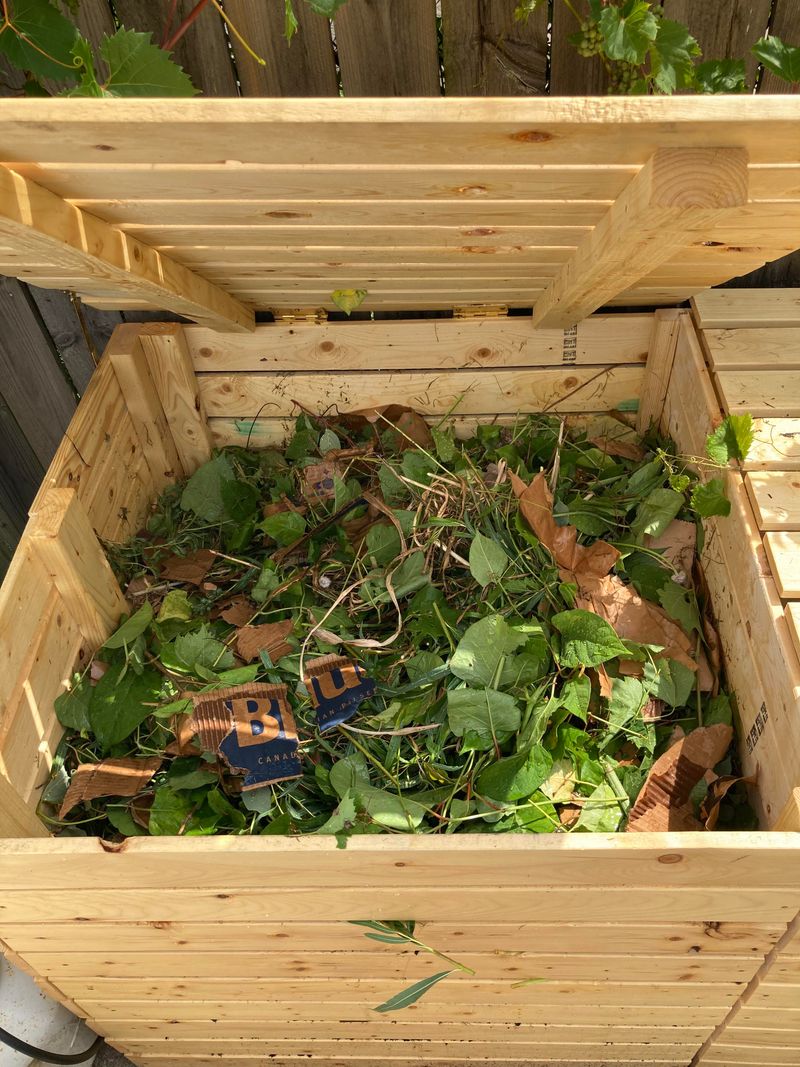
Bins left open through winter reach working temperature much faster when spring sunshine returns. Closed systems need time to thaw completely and warm up before decomposition resumes at full speed.
Open piles catch early spring rain and warming air immediately, jump-starting microbial activity weeks earlier than sealed bins. Sun rays penetrate exposed surfaces, heating the pile from multiple angles.
Gardeners with open bins can often harvest finished compost for early plantings while neighbors with closed systems are still waiting for theirs to activate.

